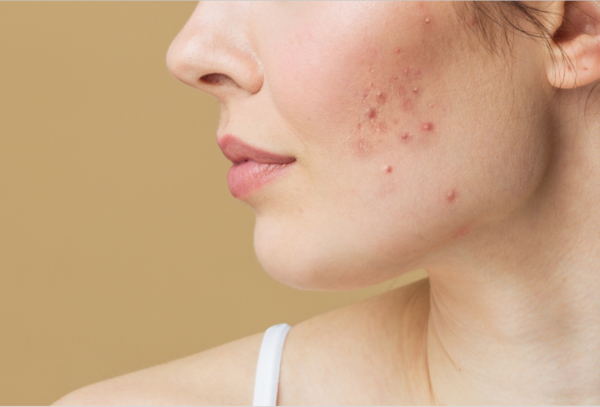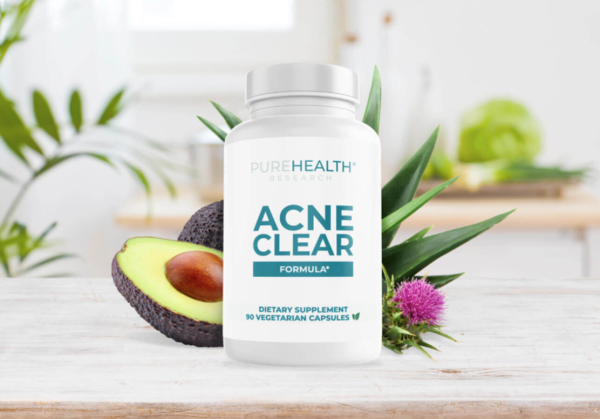The Surprising Effects of Ashwagandha on Your Skin
When it comes to skin health, the conversation often turns to the topic of diet, environmental factors, and the skincare products we use. However, a burgeoning area of interest lies in the realm of herbal supplements and their potential impact on our skin. “Can ashwagandha cause acne?” is a question that is increasingly being asked by those who are both curious and cautious about the effects of this ancient herb on skin health.
What is Ashwagandha?
Ashwagandha, with its botanical name Withania somnifera, is not merely a supplement; it is steeped in centuries of history within the Ayurvedic medicinal tradition. This powerful herb has been revered for millennia for its adaptogenic qualities, which essentially aid the body in adapting to and mitigating stress. This ancient herb is not only about soothing frayed nerves; its implications for skin health are particularly intriguing and multifaceted. Delving deeper into the skin-enhancing attributes of ashwagandha, we find a trove of potential benefits that go well beyond the realm of stress relief.
The adaptogenic effects of ashwagandha help in balancing the endocrine system, which can stabilize hormonal fluctuations that often exacerbate skin conditions such as acne. This hormonal equilibrium is crucial for maintaining clear, radiant skin. Moreover, ashwagandha is believed to possess potent anti-inflammatory properties, offering relief from skin irritation and inflammation.
In the context of skin health, inflammation is a key player in conditions like acne, eczema, and psoriasis. By modulating the body’s inflammatory response, ashwagandha may not only soothe inflamed skin but also contribute to a more even skin tone and texture. Antioxidants are another cornerstone of ashwagandha’s skin benefits.
The herb is rich in compounds that fight oxidative stress, a factor in premature skin aging and a contributor to dull, lifeless skin. Ashwagandha’s antioxidant arsenal works to combat free radicals, protecting the skin from environmental aggressors and helping to preserve its youthful elasticity and firmness.
Causes of Acne
Acne, that pervasive skin condition characterized by the appearance of pimples, blackheads, and inflamed patches, is not just a superficial concern; it’s a complex biological process influenced by an array of internal and external factors. Understanding what usually causes acne is crucial for addressing this dermatological puzzle that affects millions worldwide.
At the core of acne development are the sebaceous glands, which produce sebum, an oily substance designed to keep our skin hydrated and protected. However, when these glands go into overdrive, often triggered by hormonal changes such as puberty, menstruation, or stress, they produce an excess of sebum. This overproduction can lead to clogged pores, which become the perfect breeding ground for acne. Hormonal fluctuations are a significant catalyst in the acne equation.
Androgens, hormones that increase in males and females during adolescence, can cause sebaceous glands to enlarge and make more sebum. These hormonal surges can continue to affect adults, particularly women, who may experience premenstrual flare-ups or breakouts during pregnancy or when using certain birth control methods. But hormones are not the sole culprits.
Bacteria also play a pivotal role. The skin’s surface is home to Propionibacterium acnes, a bacteria that thrives in the oily regions of the skin’s hair follicles. While normally harmless, when a follicle is blocked, this bacterium can create an environment that leads to the inflammation and redness associated with acne.
Can Ashwagandha cause acne?
To unravel this, we need to consider ashwagandha’s influence on the body’s hormonal landscape. The herb is an adaptogen, which means it aims to stabilize and balance the body’s systems. It’s particularly known for its ability to modulate the stress hormone cortisol. Ideally, by reducing stress-related hormones, ashwagandha could help in diminishing stress-induced acne flare-ups.
Yet, the hormonal interplay is intricate. Ashwagandha can influence other hormones, including testosterone, which could theoretically lead to an increase in sebum production and potentially contribute to the development of acne. The scientific community has not reached a consensus on this, as research into ashwagandha’s direct effects on acne is still in its nascent stages. It’s also important to note that each individual’s biochemistry is unique, and supplements that are beneficial for some may not have the same effect on others.
While ashwagandha might soothe stress and related skin issues for many, it could possibly exacerbate acne for others, perhaps due to underlying hormonal sensitivities or predispositions. Another point to consider is the form and purity of the ashwagandha used. Supplements are not created equal, and some may contain fillers or additives that can irritate the skin. Moreover, the dosage and method of consumption could play roles in how the body reacts to the herb.
Given these variables, it is not entirely accurate to definitively state that ashwagandha causes acne. The relationship between ashwagandha intake and skin health appears to be highly individualistic and can be influenced by multiple factors, including hormonal balance, product quality, dosage, and individual skin type.
Skin Supplements
Incorporating supplements that contain ashwagandha, such as Pure Health Research’s Acne Clear, can be a thoughtful addition to one’s skin health strategy. Acne Clear is formulated with natural ingredients, including Zinc Picolinate and Selenium, as well as a proprietary blend designed to target the internal causes of acne. By aiming to balance the body’s inflammatory response and defend against bacteria, Acne Clear could provide a holistic approach to managing skin health, with ashwagandha being a key component in this formula.
Final Thoughts
In sum, acne is the manifestation of a complex interplay of hormonal imbalances, bacterial growth, genetic factors, and lifestyle influences. It’s a condition that can be as emotionally taxing as it is physical, but through understanding its root causes, individuals can better navigate the myriad of treatment options and lifestyle adjustments available to mitigate this persistent skin concern.
For those considering ashwagandha for its myriad benefits, it would be prudent to monitor the skin’s response closely and consult with a healthcare provider, especially for those with a history of hormonal imbalances or skin disorders. Personal observation and professional advice can help determine whether ashwagandha is a friend or foe to your skin.























